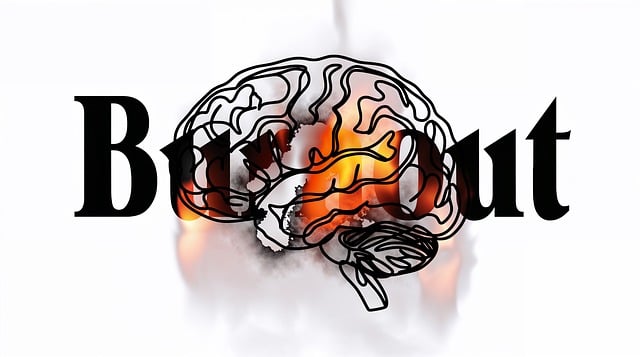In Highlands Ranch Play Therapy, effective risk management is key to addressing complex emotional scenarios. Therapists enhance their resilience through self-care practices like meditation and mindfulness, allowing them to maintain calmness during intense sessions. They identify and mitigate risks, including emotional vulnerabilities and cultural differences, using strategies such as journaling exercises and tailored communication. Regular risk assessments, trauma support services, and ongoing training ensure a structured, supportive environment for clients' mental health and well-being. Continuous monitoring and updates are vital to adapt to evolving client needs and implement appropriate interventions promptly.
In the dynamic field of mental health practice, particularly within Highland Ranch play therapy settings, effective risk management is paramount. This article guides mental health professionals through a comprehensive approach to risk assessment and mitigation, ensuring safe and nurturing environments for clients. We explore key areas, including understanding risk management nuances specific to play therapy, identifying potential risks, developing robust frameworks, implementing strategic interventions, and fostering continuous improvement. By adopting these practices, professionals can enhance client outcomes while minimizing potential hazards in Highland Ranch and beyond.
- Understanding Risk Management in Mental Health Practice
- Identifying Potential Risks in Play Therapy Settings
- Developing a Comprehensive Risk Assessment Framework
- Implementing Effective Risk Mitigation Strategies
- Continuous Monitoring and Improvement for Safe Practice
Understanding Risk Management in Mental Health Practice

In the realm of mental health practice, risk management planning is an indispensable tool for professionals navigating the complexities of human emotions and experiences. Highlands Ranch Play Therapy therapists, among others, must be adept at recognizing and mitigating potential risks that can arise in therapeutic settings. This involves a comprehensive understanding of not only the client’s present challenges but also their historical trauma, which could surface during sessions.
By integrating Compassion Cultivation Practices and Mindfulness Meditation into their Self-Care Practices, mental health professionals in Highlands Ranch Play Therapy can enhance their ability to manage these risks effectively. Such practices foster emotional resilience, enabling therapists to remain present, attentive, and non-reactive during potentially charged interactions with clients. This, in turn, creates a safer, more supportive environment for healing, ensuring that both the therapist and client can explore sensitive issues with greater ease and clarity.
Identifying Potential Risks in Play Therapy Settings

In Highlands Ranch Play Therapy settings, mental health professionals must be vigilant in identifying a multitude of potential risks that can impede both therapeutic progress and the overall well-being of clients. These risks span various domains, from emotional vulnerability during play exercises to the impact of cultural differences on therapeutic interactions. Professionals should be equipped with strategies for assessing and mitigating these risks, integrating practices like Mental Wellness Journaling Exercise Guidance to foster self-awareness and emotional regulation in clients. By promoting open communication channels and tailoring therapy sessions to meet individual needs, therapists can create a safe space conducive to the Emotional Healing Processes.
Furthermore, cultivating cultural sensitivity within Highlands Ranch Play Therapy is paramount. Recognizing and respecting diverse backgrounds, beliefs, and values ensures that therapeutic interventions are inclusive and effective. Therapists must stay informed about cultural nuances in mental healthcare practice, understanding how these factors can influence a client’s experience of trauma, stress, or coping mechanisms. This awareness enables professionals to adapt their approaches, providing guidance that resonates with clients from various cultural perspectives while ensuring ethical and respectful care.
Developing a Comprehensive Risk Assessment Framework

In the field of mental health, particularly within the context of Highlands Ranch Play Therapy services, developing a robust and comprehensive risk assessment framework is paramount. This process involves meticulously evaluating clients’ psychological states, past experiences, and potential triggers to mitigate risks that may impede their therapeutic journey. By integrating Trauma Support Services and leveraging Mental Wellness Journaling Exercise Guidance, professionals can create a structured approach to identify and address vulnerabilities.
This framework should encompass not just the immediate dangers but also the broader environmental and social factors affecting mental wellness. It’s crucial to regularly update these assessments, as client conditions can evolve over time. Through this holistic risk management planning, Highlands Ranch Play Therapy professionals ensure a safer, more supportive environment for clients’ mental health and well-being.
Implementing Effective Risk Mitigation Strategies

Mental health professionals in Highlands Ranch Play Therapy or any setting must implement robust risk mitigation strategies to ensure a safe and supportive environment for clients. This involves a multi-faceted approach, encompassing both proactive and reactive measures. Firstly, establishing clear boundaries and safety protocols is paramount. Therapists should articulate these guidelines effectively, ensuring clients understand their rights and responsibilities. Regular staff training on emotional intelligence and crisis intervention guidance can significantly enhance the team’s ability to recognize and manage risks proactively.
Additionally, fostering a culture of open communication encourages clients to express concerns or triggers without fear of judgment. This is further enhanced by maintaining confidential record-keeping practices. By integrating confidence-boosting techniques into therapy sessions, professionals can empower clients to better manage their emotional responses. Such strategies collectively contribute to a high-functioning practice environment that prioritizes risk management, ultimately benefiting both therapists and the diverse range of clients they serve.
Continuous Monitoring and Improvement for Safe Practice

Mental health professionals in Highlands Ranch Play Therapy are well-advised to adopt a continuous monitoring and improvement approach for safe and effective practice. Regularly reviewing and updating risk management plans is essential, as it ensures that strategies remain relevant and tailored to the evolving needs of clients. This proactive mindset fosters an environment where potential risks can be identified early, enabling professionals to implement appropriate interventions promptly.
By consistently assessing practices, therapists can identify areas for improvement related to Depression Prevention, Anxiety Relief, and Coping Skills Development. Continuous monitoring encourages a culture of learning and adaptation, allowing professionals to stay abreast of the latest research and best practices in mental health care. This commitment to ongoing development ultimately contributes to enhanced client outcomes and the maintenance of a secure therapeutic space.
Effective risk management planning is essential for mental health professionals in Highlands Ranch Play Therapy settings to ensure safe and compassionate care. By understanding potential risks, developing robust assessment frameworks, and implementing tailored mitigation strategies, therapists can create a secure environment that promotes healing. Continuous monitoring and adaptation are key to improving practice and fostering a positive therapeutic experience for clients. This structured approach allows mental health professionals to navigate challenges with confidence, ultimately enhancing the quality of care provided in these specialized settings.














